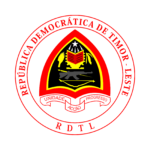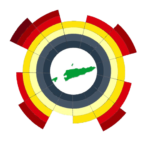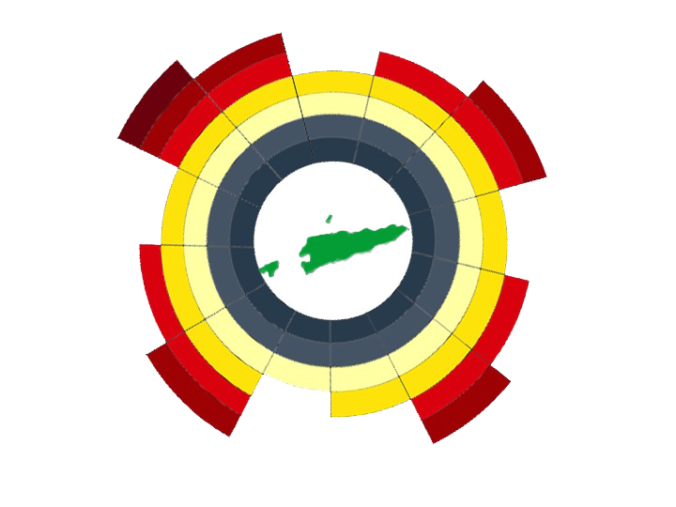Below is the text of a presentation by the Timor-Leste Vice Minister for State Administration, Tomas Cabral, to the Local Government Professionals Australia National Congress on 5 May 2016. The presentation provides an overview of Timor-Leste decree laws of March 2016, relevant to decentralisation, as well as information on future plans for increasing service delivery by the Municipalities (formerly District Administrations).
[Some minor corrections/additions to the original text have been made – an original copy of the Vice Minister’s presentation on Decentralisation is available here.]
LOCAL GOVERNMENT IN TIMOR-LESTE


Context
- The Democratic Republic of Timor-Leste restored its national independence on the 20th of May 2002, after having been subject to the Transitional Administration of the United Nations, which began in late 1999, after 78.5% of the Timorese expressed themselves in favor of national independence;
- Timor-Leste territory has a total area of 15,007 km², which is divided administratively in twelve municipalities, one special administrative region and sixty-five administrative posts;
- Timor-Leste has a population of approximately 1,172,390 inhabitants, of which 73% live in rural areas and only 27% live in urban areas;
- The population density of Timor-Leste is 75.3 inhabitants per km²;
Political and Administrative characterization
- Timor-Leste is a unitary, republican and democratic State with a semi-presidential system of Government;
- The administrative system of the Democratic Republic of Timor-Leste is an executive one, of French type, an option which is enshrined in the Constitution;
- Given the need to assure the creation of the new State’s institutions, local governance was not considered a priority neither during the period of the transitional UN administration nor during the first decade of exercise of the restored sovereignty;
- In 2011, with the approval of the National Strategic Development Plan, the creation of the Local Government came to be regarded as a necessary precondition for the achievement of four strategic objectives:
- Increasing and improving the public services rendered at the local level;
- Creation of new opportunities for democratic participation;
- Affirmation of the institutions of a strong State across the national territory;
- Development of the private sector in rural areas;
Local Government creation strategy
- The National Strategic Development Plan recognizes that the creation of local governments able to drive the development process will require preparation time for the introduction of systems, processes and local public management procedures, as well as the training of human resources of the Local State Administration;
- With the approval of Decree-Law nr. 3/2016, of 16 March, the Government approved the reform of State Local Administration´s organization and defined a strategy for its development, strengthening and increased autonomy;
- According to the new law, the creation of Local Governments will be made over three phases or stages:
- A phase of administrative deconcentration, during which new local services will be created and enhanced their ability to work (provision of additional human resources and greater financial resources) and new systems and local democratic management processes to provide public services will be introduced;
- A phase of institutional decentralization, during which will significantly increase the responsibilities of the local services in financial matters and in the definition of policy implementation strategies, gradually exercised with a greater degree of autonomy;
- A phase of territorial decentralization, during which the local government will be completely autonomous from the central government in the definition of their public policies and its respective execution (this higher degree of autonomy from the central government arises from the fact that the government officials are locally elected and not appointed by the central government);
Currently the Local Government´s creation process is on the administrative deconcentration phase.
Description of the Administrative Deconcentration phase
- During this phase of the Local Government’s creation strategy, are particularly important:
- The significant increase in the variety and quality of public services provided by the Local Government;
- Increased opportunities for democratic participation of citizens in matters that concern their community;
- The approval of Decree-Law No. 3/2016, of 16 March ended this lack of definition as it:
- identifies the services to be provided by the State´s Local Administration;
- reformed the State Local Administration´s organization according to the needs of the provision and delivery of the aforementioned services;
- created the necessary basis for the development of local administrative systems;
- created the necessary conditions for the training of human resources of the Local Government;
- The currently existing Public Administration outside the state capital is very rudimentary in terms of organization, resources and administrative systems (to a significant extent, the delay in the development of the Local Government arose from the political lack of definition, during a long period of time, of the role to be assumed by the Local Government, of its responsibilities, and on the coordination mechanisms with the central government);
- The Timor-Leste Government considers that increasing the Local Government´s responsibility in the provision of public services, with an intense civic social control, it shall be possible to:
- Respond effectively to the real needs of local populations;
- Improve the quality of the services provided, because the options and local development strategies are discussed and evaluated by the citizens and their representative organizations;
- Develop the private sector in rural areas (initially induced by the public investment made within the context of the administrative reform and by the local infrastructure public programs) and later by the availability of access to public infrastructures, public facilities and services, to the present time mostly available only in the capital Díli;
- Affirm the institutions of a strong State across the national territory by strengthening the territorial cohesion of Timor-Leste (the elimination of development disparities between municipalities enhances the union of the Timorese with the State and with a national project).
Local Government Areas of activity
- According to the new law, the State Local Administration will be responsible for providing services in the following fields:
- Education;
- Health;
- Water, Sanitation and Environment;
- Agriculture;
- Food Security;
- Markets Management and Tourism;
- Social Assistance;
- Civil Protection;
- Management of Natural Disasters;
- Public Registries, Public Notaries and Cadastral Services;
- Support to Non-Governmental Organizations and Community Organizations.
Focus during deconcentration
- During the current year [2016] the State Local Administration´s activity shall focus on:
1. the development of strategic management tools;
2. the installation of new municipal services;
3. the training of local human resources;
4. the selection of key public investments to be made in the next year;
Cooperation opportunities
- Australia has stable [local government], respected and with a huge experience in providing services to local populations, particularly in the field of social protection and support and mobilization of non-governmental organizations towards the development and vitality of the local communities;
- It would be extremely helpful to my Government and to the Local Governments of Timor-Leste [to have] the opportunity to learn about your good examples, understand them and apply them in Timor-Leste.



